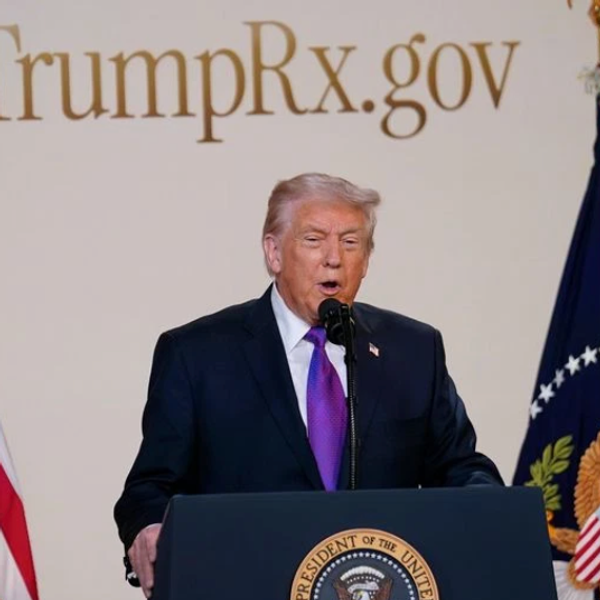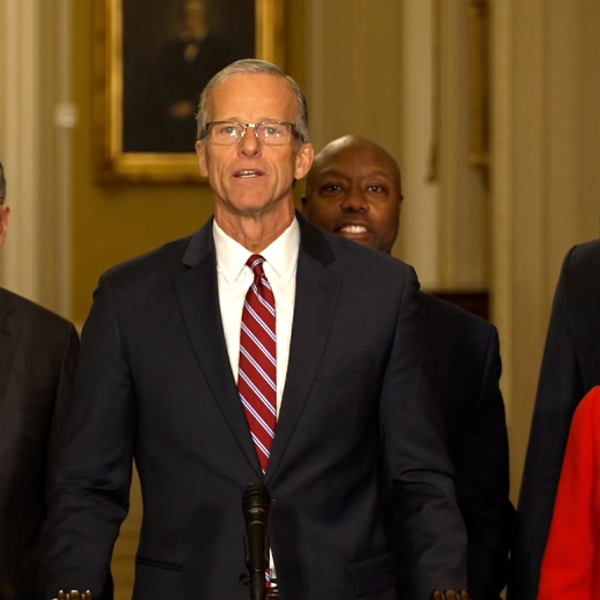
The Republicans are masters of communication. When it comes to the Affordable Care Act, also known as Obamacare, they have marched in lockstep and spoken with a clear loud voice:
“Obamacare is a job killer!”
Over and over, we heard it. During Mitt Romney’s run for the White House. During the eleventy-million times the US House passed repeal. During the 2016 Republican primary.
Last January, Texas Senator Ted Cruz said: “We have seen now in six years of Obamacare that it has been a disaster. It is the biggest job-killer in this country.” President-elect Donald Trump ran with it. His victory came partly from a vow to kill off that terrible, horrible, no good, very bad, job-killing Obamacare.
They were wrong.
Anecdotal evidence suggests a small percentage of small businesses closed up shop, stopped hiring, or laid off workers rather than provide health insurance for employees. But the law did not cause widespread job loss. Since the Great Recession ended, we have seen 70-plus months of steady job gains, most full-time.
So Obamacare is not a job killer.
But killing Obamacare would kill jobs.
If Trump and Congressional Republicans were to repeal without replacing Obamacare, millions of full-time jobs would vanish. Lawmakers would trigger a painful contraction of economic output. And they would send federal expenditures through the roof.
According to the nonpartisan Commonwealth Fund, repeal without replacement would cost 2.6 million jobs nationally, $1.5 trillion in Gross State Product and $2.6 trillion in business output. States would lose tax revenues upwards of $48 billion.
In Connecticut, 36,000 jobs could vanish, most in health care but many in other sectors of the economy. Gross State Product could contract by more than $23 billion (GSP was $253 billion in 2015). The state could lose $747 million in tax revenue.
California, with the country’s largest economy, would be hit hardest. Some 334,000 jobs would be lost. Gross State Product would shrink there by more than $208 billion (GSP was $2.48 trillion in 2015). The state could lose $6.8 billion tax revenue.
That’s nothing compared to the human toll. Some 20 million people are now insured under Obamacare (300,000 more this year than last). Ironically, most are from red states. The nonpartisan Kaiser Family Foundation found a greater number (6.3 million) benefiting from the health care law living in Republican congressional districts, with the highest concentration in Florida, North Carolina, Georgia and Utah.
Deepening the pain is that repeal would be an annual $7 million tax cut, on average, for America’s top 400 households. In other words, repeal would comfort the healthy and comfortable.
Killing Obamacare would also lead to new federal spending. The law curbs the ballooning cost of Medicare. If you reverse the law, you reverse spending cuts to Medicare. If you reverse spending cuts to Medicare (the federal government’s largest expenditure next to Social Security), spending will soar.
This, in addition to concern for the health and well being on constituents, is why even Tea Party budget-hawks in the House are getting nervous about repeal. After years of longing to slay this shibboleth of the Nanny State, the Republicans could end up triggering a recession while deepening the dread deficit.
But honestly. Republicans already knew that Obamacare was not a job killer. It was not “government-run” health insurance. There never were “death panels.” It was all a big play to win.
We know this because Republicans sometimes tell the truth by accident (a “gaffe” if you will). In 2012, Mitt Romney was asked why he wasn’t giving hardliners the cuts they wanted.
He said: “If you take a trillion dollars out of the first year of the federal budget, that would shrink GDP over 5 percent. That is by definition throwing us into recession or depression.”
I don’t know how Trump and the GOP are going to square this. Maybe they need to come clear. We lied to you, dear voter. Obamacare and the Affordable Care Act are the same thing. If we do what you ask of us, we’d hurt you — and ourselves.
I’m not holding my breath.
John Stoehr is a lecturer in political science at Yale and a New Haven resident. He can be reached at johnastoehr@gmail.com.








